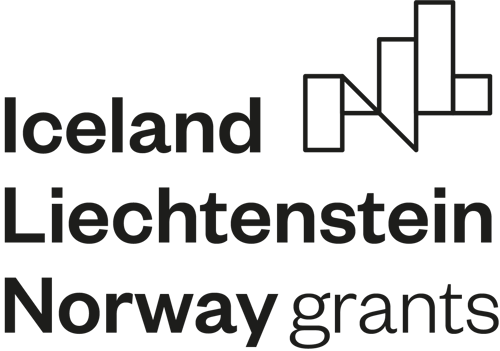 Homepage CASE
Homepage CASE
Selected values

INTERCEPT – Motivating Mobilizing Supporting Neets Green Career Pathway
-
Date:
1 Sep 2021 - 24 Jan 2024
-
Project duration:
01.09.2021 - 24.01.2024
-

Oskar Chmiel
Oskar Chmiel holds a PhD in Social Sciences with a specialization in Political Science from the University of Wroclaw. He is particularly interested in the political and social aspects of international development cooperation, migration, and trade. Prior to joining CASE, Oskar gained experience working, among others, as an intern at the Polish Centre for African … <a href="https://case.dev10.pro/project/intercept-motivating-mobilizing-supporting-neets-green-career-pathway/">Continued</a>
Projects from this author:
- Capacity building for local and regional authorities in the light of the Ukraine Facility (Pillar III)
-
In search of mechanisms linking the pseudo-causal narratives and policy outcomes: the case of the Trade-Development-Migration nexus in the EU’s approach towards the countries of its Southern Neighbourhood
The project will examine what causal mechanisms link the pseudo-causal policy narratives and policy outcomes in the European Union’s trade-development-migration nexus (hereafter, T-D-M nexus), and how they do it. To address this question, the project will focus on the narratives about addressing the root causes of migration through trade and development cooperation, produced by … Continued
-
How to eradicate skills poverty among the most vulnerable?
In a context of changing labour market needs due to the green and digital transitions and the still gaping skill divides across society, the European Commission proposes a number of actions ‘to give a fresh impetus to lifelong learning’. This includes ‘Promoting increased, and more effective and inclusive investment in training and upskilling to harness … Continued
-

Zuzanna Stańska
Specialist in Social Sciences
Before joining CASE, Zuzanna Stańska worked in advisory for the public sector at PwC, where she supported the implementation of projects related to the development of local government units, regional strategies, competency development in public institutions, and the creation of financial instruments. Zuzanna is interested in sustainable development, public policy, social movements, and ESG.
Projects from this author:
-
FUTURE FOR ALL – Advancing Cross-Generational Collaboration through Futures Literacy (FFA)
The primary objective of the “FUTURE FOR ALL - Advancing Cross-Generational Collaboration through Futures Literacy (FFA)” project is to encourage active participation of citizens in the life of their respective neighborhoods with a specific emphasis on promoting intergenerational cooperation. The project addressed to elderly and youth residing in youth sociotheraphy centres (and the educators of the respective groups) identifies specific objectives: Face social problems between generations and contributing to lifelong learning Fight stereotypes, improve mutual knowledge and understanding Transfer of knowledge between Norway and Poland, and exchange of experience in applying futures thinking tools in working with intergenerational group Equip seniors and (socially maladjusted) youth with Futures Literacy tools to help them achieve developmental goals for their life stage Raise awareness of the local environment and a sense of responsibility, and agency to improve it To achieve these goals, the project intend to leverage the innovative approach of Futures Literacy to empower and engage the two crucial demographics. Futures Literacy is a concept and methodology developed by the UNESCO that presents an altered perspective on how to perceive and engage with the future (UNESCO, n.a.). It is a cognitive skill and a framework designed to enhance one’s capacity to comprehend, navigate and shape the complex and uncertain nature of the future. Apart from Futures Literacy approach the project will use additional activities designed to address key issues and encourage intergenerational collaboration such as: anti-stereotype and integrational workshops to provide a platform for both generations to openly discuss and challenge stereotypes that may hinder effective collaboration and understanding Urban Game Design: The elderly will take the lead in designing an urban game for the youth, offering them an opportunity to explore and connect with the city they know from a different perspective Planting activity: A shared activity of planting flowers will be organised to foster active citizenship and environmental awareness among the groups. Intergenerational trip: Organisation of a day trip to a museum or a concert chosen by either the elderly or the youth hold immense potential for interesting experiences among the participants The activities planned in the project support intergenerational cooperation, leverage the strengths of different age groups, creating a synergy that is particularly relevant in the context of modern world. By promoting understanding, collaboration, and mutual support among generations we can collectively adapt to and address the complex challenges of today’s rapidly changing world. The project will also strengthen bilateral cooperation between Poland and Norway in the area of building social capital in local communities. It will be achieved by a Polish and a Norwegian organisation that will combine their experiences in supporting active citizenship in their various environments and by using their different areas of expertise. Funding: Fund for Bilateral Relations, hereinafter referred to as the “FBR” the European Economic Area Financial Mechanism 2014-2021 and Norwegian Financial Mechanism 2014-2021 Project Leader: CASE Project Partner: Fremtenkt
- CASE on Poland’s Twenty Years in the EU
-
Study on the role of the socio-economic partners in skills strategies for a just green transition: a regional perspective
The objective of the study is to collect evidence on and investigate the role of the socio-economic partners in the skill component of just green transition strategies at regional level and to draw lessons and formulate policy recommendations as to how this role could be enhanced in other regions facing similar challenges. The investigation will … Continued
-
FUTURE FOR ALL – Advancing Cross-Generational Collaboration through Futures Literacy (FFA)
-

Marek Peda
Marek Peda is responsible for managing research projects funded by European, national, multilateral, and private donors. Mr. Peda has over 10 years of professional experience as a project manager and in conducting research. He gained international exposure while working on projects for international organizations and academic institutions in Spain and the United States. Mr. Peda … <a href="https://case.dev10.pro/project/intercept-motivating-mobilizing-supporting-neets-green-career-pathway/">Continued</a>
Projects from this author:
-
How the EU should prepare for the enlargement in terms of governance, policies and investments: options and choices made from a territorial perspective
In its 2023 enlargement package, the European Commission recommended that the Council open accession negotiations with Ukraine and Moldova. Moreover, it recommended that the Council grant Georgia the status of candidate country and open accession negotiations with Bosnia and Herzegovina, once the necessary degree of compliance with the membership criteria has been achieved. The … Continued
-
The means for cities and regions to support the energy transition in the Mediterranean
Since February 2022, the war in Ukraine has significantly reshaped the geopolitical landscape and exacerbated the multiple challenges and tensions in the Mediterranean region. The conflict has highlighted the vulnerability of traditional energy supply routes, and the need to reassess future energy development strategies in the Mediterranean region. Like the COVID-19 pandemic, geopolitical uncertainties … Continued
-
Natural disasters: anticipatory governance and disaster risk management from a local and regional perspective
The COVID-19 pandemic, the war right on our doorstep, the devastating floods in Slovenia, wildfires in Greece and Cyprus, relentless heatwaves in Italy and Spain, to name just a few: all of them highlight the need to better prepare for, cope with and recover from disasters and crises. It is one of the most important challenges for … Continued
-
How the EU should prepare for the enlargement in terms of governance, policies and investments: options and choices made from a territorial perspective
The project’s goal is to tackle youth unemployment with a transnational approach. This topic, along with its multinational angle, is perfectly in line with the Europe 2020 strategy and the EU cohesion policy that takes into account the crucial role of the regions and cross-border cooperation plays in smart, sustainable and inclusive growth. In this context the INTERCEPT is an ambitious initiative characterized by a duality of purpose, reducing social inequalities and raising awareness on green economy while implementing sustainable policies. The project revolves around the idea that the green economy and the investments within it are going to be crucial for the post-pandemic recovery and are bound to change our economy and society forever. The INTERCEPT project stretches over three countries – Malta, Lithuania, Italy – and it involves a group of 300 NEETs (Neither in Employment or in Education or Training) between the age of 25 and 29 years who will be trained accordingly and will search employment related to Green Economy.
The aim of the project is to mainstream the new approach into a structural measure to integrate NEETs in the green economy, relying also on the evaluation of piloted schemes. The project partners are public employment services that will be able to see, through the project, the effectiveness of their services. INTERCEPT will also engage employers to ensure consistency between labour force competences and demands in the green economy.
In this context, CASE will analyze the best practices which lead to the successful 25-29 years old NEETs’ integration in the labour market. Another task of the project will be to identify and highlight barriers that limit the impact of the implemented practices in all participating countries. CASE’s experts will take part into the assessment of pilot projects and will collaborate in the creation of the conclusions and improvements suggestions. CASE experts will also have a quality control role in the project
The project’s operational objectives are:
- analysis of the characteristics, needs, and barriers faced by the target group in partner countries; and identification of the key lessons of relevant ALMP practices implemented in the EU (with a focus on partner countries) to underpin the schemes
- developing an innovative outreach and activation strategy based on green economy for the inactive NEETs;
- designing a tailored activation, career counselling and training package;
- building connections between the PES and the employers in the green economy around organising workplace insertions of the programme participants;
- document, evaluate and share the experience of this innovative ALMP programme at EU level.
EEA and Norway Grants Fund for Youth Employment are funded by Iceland, Liechtenstein and Norway. The Grants have two main objectives – to contribute to a more equal Europe, both socially and economically – and to strengthen the relations between Iceland, Liechtenstein and Norway, and the 15 Beneficiary States in Europe. The objective of these grants is to reduce social and economic disparities and strengthen bilateral relations and the targeted population group are young people in different European countries.
Project funding: EEA and Norway Grants Fund for Youth Employment
Project coordinator: Jobsplus
Project partners:
CASE (Poland)
Institute of Economic Research of the Slovak Academy of Sciences (Slovakia);
Employment Services under the Ministry of Social Security and Labour of The Republic of Lithuania (Lithuania);
Visionary Analytics (Lithuania);
Anci Toscana – Association of Municipalities of Tuscany (Italy);
Grosseto University hub (Italy);
National Employment Agency Luxembourg (Luxembourg)
Related projects
Thanks for joining us!
You're now part of a community that values [your newsletter's focus]. Get ready to stay informed, inspired, and engaged with our carefully curated content.
